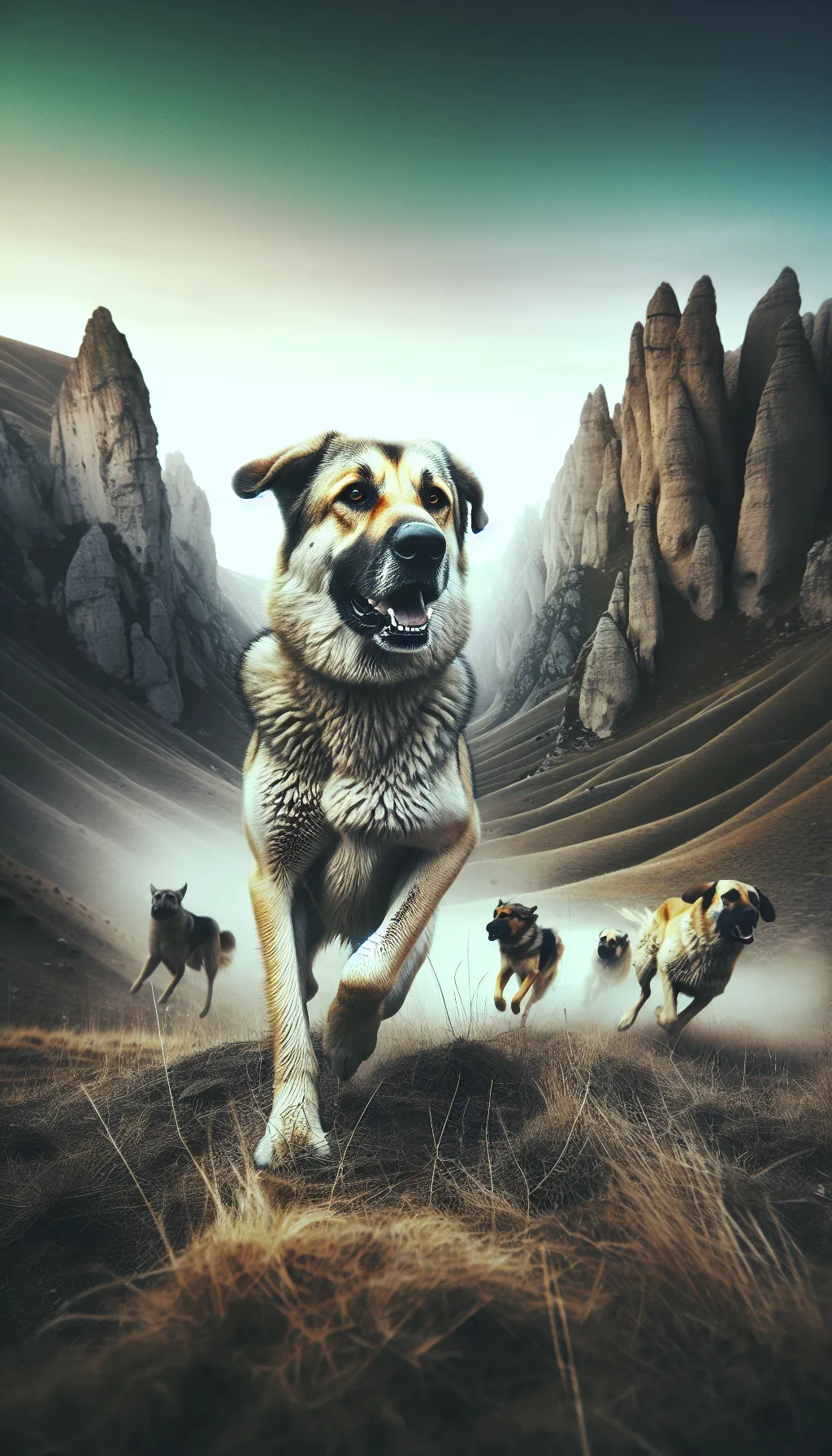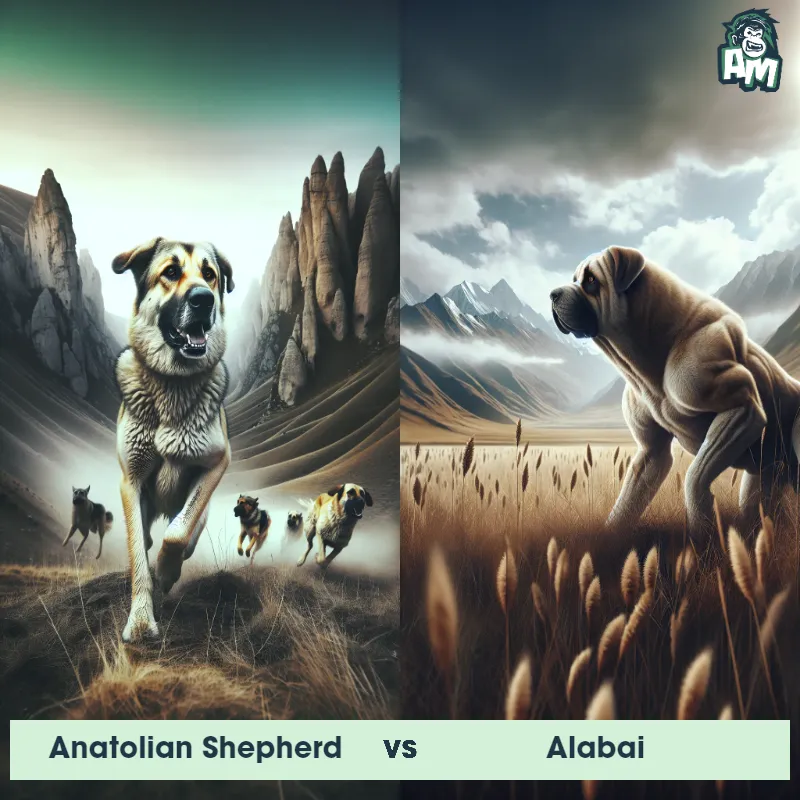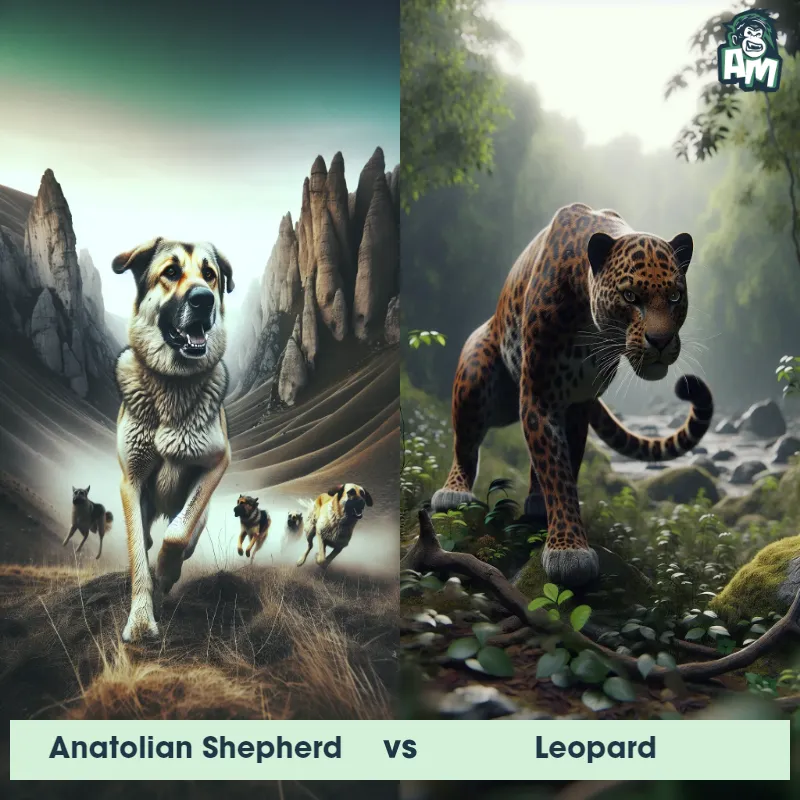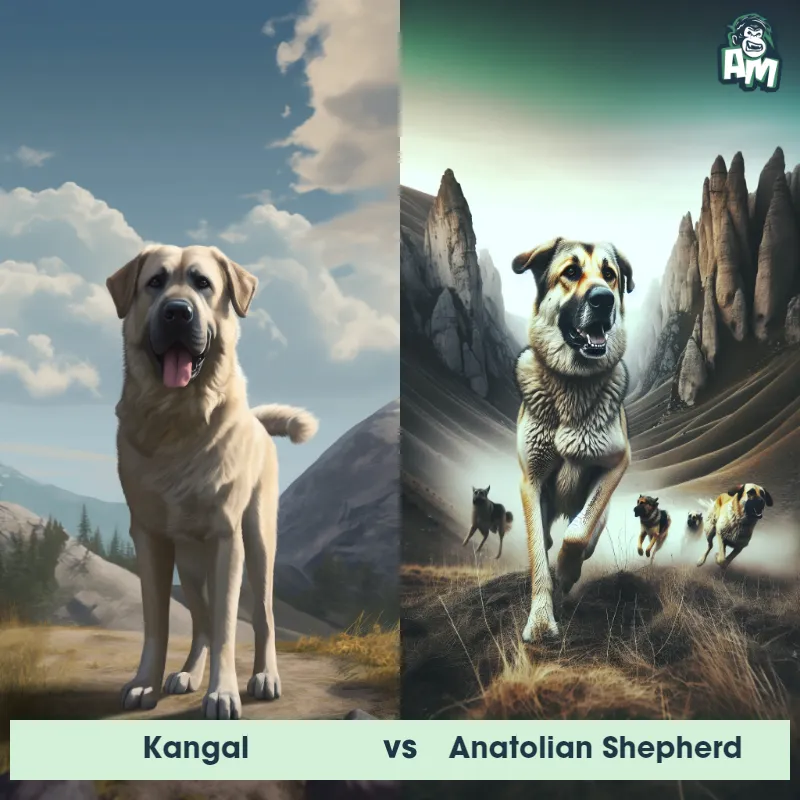The Anatolian Shepherd
The Anatolian Shepherd, also known as the Kangal or Anatolian Karabash, is a large and powerful breed originating from Turkey. Known for their protective and loyal nature, Anatolian Shepherds were bred to guard livestock from predators. They have a muscular build, a broad head with a strong jaw, and a dense double coat that enables them to withstand harsh weather conditions. These dogs have a calm yet alert temperament, making them excellent guardians and family companions.

| Anatolian Shepherd | |
|---|---|
| Size | 27-29 inches (68-74 cm) at the shoulder |
| Weight | 80-150 pounds (36-68 kg) |
| Speed | 28 mph (45 km/h) |
| Key Strength | Exceptional strength and courage |
| Biggest Weakness | Less agile compared to smaller breeds |
| Scientific Name | Canis lupus familiaris |
| Family | Canidae |
| Habitat | Rural or suburban areas |
| Geography | Originated in Turkey |
| Diet | Carnivorous – primarily meat |
| Lifespan | 10 years - 13 years |

The Anatolian Shepherd
The Anatolian Shepherd, also known as the Kangal or Anatolian Karabash, is a large and powerful breed originating from Turkey. Known for their protective and loyal nature, Anatolian Shepherds were bred to guard livestock from predators. They have a muscular build, a broad head with a strong jaw, and a dense double coat that enables them to withstand harsh weather conditions. These dogs have a calm yet alert temperament, making them excellent guardians and family companions.
Fun Fact: Anatolian Shepherds are renowned for their exceptional size and strength, with adult males typically weighing between 110 to 150 pounds and standing 27 to 30 inches tall at the shoulder, making them one of the largest dog breeds in the world.
| Anatolian Shepherd | |
|---|---|
| Size | 27-29 inches (68-74 cm) at the shoulder |
| Weight | 80-150 pounds (36-68 kg) |
| Speed | 28 mph (45 km/h) |
| Key Strength | Exceptional strength and courage |
| Biggest Weakness | Less agile compared to smaller breeds |
| Scientific Name | Canis lupus familiaris |
| Family | Canidae |
| Habitat | Rural or suburban areas |
| Geography | Originated in Turkey |
| Diet | Carnivorous – primarily meat |
| Lifespan | 10 years - 13 years |
Anatolian Shepherd Matchups
We use AI to simulate matchups between the Anatolian Shepherd and other animals. Our simulation considers size, strength, and natural predatory behaviors to determine the most likely outcome.

Can't find the Matchup you want?
Create Your Own MatchupAnatolian Shepherd: Diet, Predators, Aggression, and Defensive Behaviors
What do Anatolian Shepherds eat?
Anatolian Shepherds are known to be large and active dogs that require a diet high in protein. They should be fed high-quality dog food that is specifically formulated for large breeds. Additionally, they can benefit from a diet that includes meat, fruits, and vegetables to meet their nutritional needs and keep them healthy.
Do Anatolian Shepherds have any predators?
Anatolian Shepherds are bred to protect livestock from predators such as wolves, bears, and coyotes. They are known for their strong protective instincts and will not hesitate to confront any threats to their flock or family. However, they may face dangers from larger predators if left unprotected or unattended.
Are Anatolian Shepherds aggressive?
Anatolian Shepherds are not inherently aggressive, but they are known to be protective and territorial. They can display aggression towards strangers or other animals if they perceive them as a threat to their family or territory. Proper socialization and training are important to ensure they are well-behaved and well-adjusted.
Do Anatolian Shepherds fight?
Anatolian Shepherds are known for their strong will and independent nature, but they are not typically aggressive towards other dogs. They prefer to use their size and intimidating presence to deter potential threats rather than engage in physical confrontations. However, they will defend themselves and their family if necessary.
How do Anatolian Shepherds defend themselves?
Anatolian Shepherds are bred to be protective and make excellent guard dogs. They have a strong instinct to defend their family and territory from any perceived threats. They are known to be fearless and will not back down from a confrontation. Their size, strength, and agility make them formidable opponents to any potential threats.
What is the biggest weakness of Anatolian Shepherds in a fight?
Despite their size and strength, Anatolian Shepherds have a potential weakness in their lack of aggression towards other animals. While they are known for their protective nature, they may not always have the same drive to engage in fights as breeds bred specifically for combat. This can make them vulnerable in situations where they are forced to confront a determined and aggressive opponent.
Fun Fact: The Anatolian Shepherd has an extraordinary ability to adapt to different environments. They are well-suited to various climates, ranging from the scorching heat of summer to the freezing temperatures of winter, as they have been bred to thrive in the rugged terrain of the Anatolian region in Turkey.
Fun Fact: Despite their independent nature, Anatolian Shepherds are fiercely protective of their families and territories. They possess an innate sense of responsibility when it comes to guarding livestock or property, and their strong protective instincts make them excellent deterrents against potential threats.













